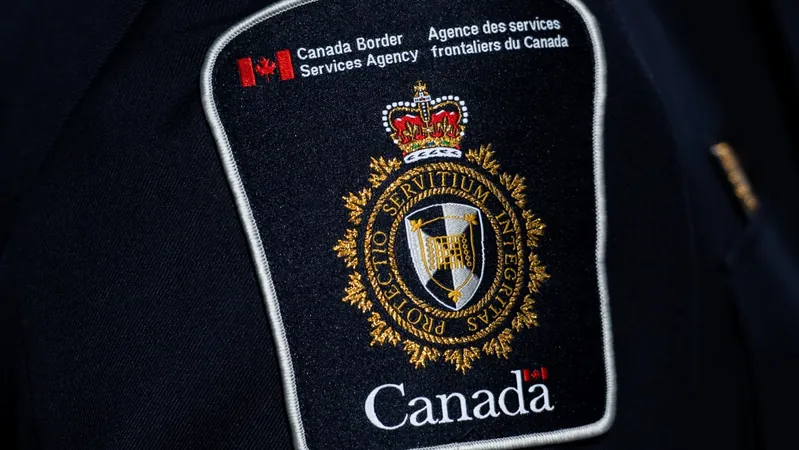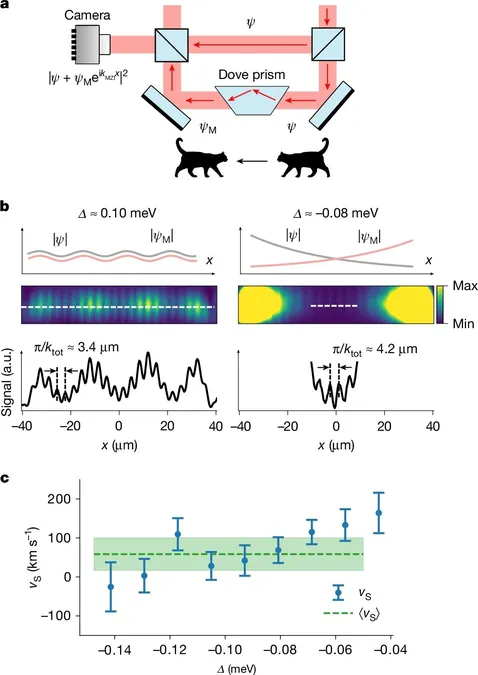
Shocking Allegations of Foreign Interference in Canadian Mafia Deportation Case!
2024-11-09
Author: Emily
Introduction
In a dramatic twist within Canada's immigration judicial system, lawyers representing Vincenzo "Jimmy" DeMaria, a purported high-ranking member of the Italian Mafia based in Toronto, have made explosive claims regarding foreign interference in his deportation case. The ongoing legal battle, initiated by the Canada Border Services Agency (CBSA), hinges on allegations that DeMaria is affiliated with the notorious Italian organized crime syndicate, known as the 'Ndrangheta.
The Evidence and its Legitimacy
At the heart of the case is a set of recordings allegedly gathered by Italian police, which the lawyers assert were obtained through illegal means. These recordings, which the CBSA has presented as crucial evidence, supposedly indicate DeMaria's connections to the criminal organization. However, DeMaria's legal team argues that the evidence constituted interference from foreign authorities and should be inadmissible in Canadian courts.
Background of the Case
In a shocking turn of events, the controversy traces back to a murder case in Calabria, Italy. In 2018, a man named Carmelo Muia, believed to be involved with the 'Ndrangheta, was murdered, prompting his brother, Vincenzo Muia, to investigate the crime. Italian authorities set up wiretaps on Muia, unbeknownst to him, as he plotted a trip to Canada to uncover the truth regarding his brother's death, believing that local figures in the Greater Toronto Area (GTA) could aid his cause.
Eavesdropping and Surveillance
The situation escalates further when it was revealed that during Muia’s trip to Toronto in March 2019, Italian police were eavesdropping on his conversations in real time using software that turned his cell phone into a listening device. Moreover, agencies like the York Regional Police (YRP) reportedly cooperated with their Italian counterparts, conducting surveillance without the necessary judicial authorization, which raises serious legal and ethical questions regarding the operation.
Legal Implications
Jessica Zita, DeMaria's current lawyer, filed a motion against the admissibility of this evidence, emphasizing that the YRP's actions represented a blatant violation of laws protecting Canadian citizens from unauthorized surveillance, thereby endangering the integrity of Canadian law itself.
The Future for DeMaria
DeMaria, who remains embroiled in this lengthy immigration procedure, faces possible deportation to Italy if ruled inadmissible. His lawyers maintain that the CBSA has previously attempted to use the same evidence in 2020, only to have it dismissed as unreliable and lacking probative value by the Immigration and Refugee Board (IRB) in 2023. Even with this past ruling, the loopholes in immigration law mean the evidence could still be leveraged against him.
Conclusion
The fallout of this case not only highlights the convoluted nature of international cooperation in crime-solving but raises serious questions about the respect for privacy rights and legal protocols in Canada. Legal experts warn that the implications of permitting such foreign influence over Canadian courts could potentially tear at the very fabric of the justice system.
As updates continue to unfold, the case shines a spotlight on the delicate balance between law enforcement collaboration and safeguarding individual rights amidst ever-present global criminal networks.
Stay tuned as this intriguing saga deepens, drawing in attention from both legal experts and the public alike, eager to see how Canada will navigate this complex intersection of organized crime, privacy rights, and foreign interference!









 Brasil (PT)
Brasil (PT)
 Canada (EN)
Canada (EN)
 Chile (ES)
Chile (ES)
 Česko (CS)
Česko (CS)
 대한민국 (KO)
대한민국 (KO)
 España (ES)
España (ES)
 France (FR)
France (FR)
 Hong Kong (EN)
Hong Kong (EN)
 Italia (IT)
Italia (IT)
 日本 (JA)
日本 (JA)
 Magyarország (HU)
Magyarország (HU)
 Norge (NO)
Norge (NO)
 Polska (PL)
Polska (PL)
 Schweiz (DE)
Schweiz (DE)
 Singapore (EN)
Singapore (EN)
 Sverige (SV)
Sverige (SV)
 Suomi (FI)
Suomi (FI)
 Türkiye (TR)
Türkiye (TR)
 الإمارات العربية المتحدة (AR)
الإمارات العربية المتحدة (AR)